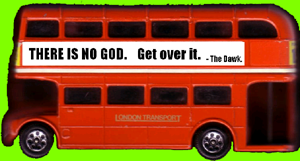 In order to survive, any extremist organisation has to turn public opinion against the group from which it recruits in order that some individuals in this group will become radicalised and provide the extremists with an intake.
In order to survive, any extremist organisation has to turn public opinion against the group from which it recruits in order that some individuals in this group will become radicalised and provide the extremists with an intake.A case in point was the methods of nationalist and loyalist paramilitary organisations emanating from Northern Ireland, which would carry out operations in such a way as to cause feelings of revulsion in the target community and polarise the non-aligned, often by using twisted logic to classify innocents as enemies and act accordingly. For example, attacks on peace-loving Irish people in London following IRA bombs weren't a side-effect of the campaign, they were one of the desired outcomes, to cause radicalisation.
A similar process can be seen in the 2004 murder of film-maker Theo van Gogh in Amsterdam. Local government, in introducing its action plan to counter radicalisation, stated: "Although we were prepared for the possibility of an attack in Amsterdam, we were totally unprepared for the abhorrent way in which this attack took place. It put an enormous strain on relations in the city."
I wouldn't want to accuse Professor Richard Dawkins of wishing to radicalise those atheists who don't accept that being so doesn't mean they have to be anti-religion in a violent way, but he is involved in an attempt to radicalise them nonetheless.
On June 20 this year, Guardian blogger Ariane Sherine reported seeing a poster posing
 the question that Luke 18:8 tells us Jesus asked his disciples during a discourse in the house of the Pharisee where he cured the man with the dropsical hand (starting 14:1) - "when the Son of Man comes, will he find any faith on earth?". She went on to write a rather amusing article which she ended by proposing that thousands of atheists club together to buy an advert on a bus that would say, "There's probably no God. Now stop worrying and get on with your life." She states the Guardian's Comment is Free editor contacted the head of the National Secular Society for her to check out the feasibility of such a scheme. He appeared not to be very impressed, and suggested people donate to the NSS.
the question that Luke 18:8 tells us Jesus asked his disciples during a discourse in the house of the Pharisee where he cured the man with the dropsical hand (starting 14:1) - "when the Son of Man comes, will he find any faith on earth?". She went on to write a rather amusing article which she ended by proposing that thousands of atheists club together to buy an advert on a bus that would say, "There's probably no God. Now stop worrying and get on with your life." She states the Guardian's Comment is Free editor contacted the head of the National Secular Society for her to check out the feasibility of such a scheme. He appeared not to be very impressed, and suggested people donate to the NSS.That same day, however, Jon Worth, who in his other life designs websites for Labour politicians, came by the post and changed it from some slightly controversial fun into something else in his blog, in which he states "you can’t spend a day in central London without being confronted by some sign that religion should be your only salvation", adding "what I really loathe is people somehow judging that those with religious belief are somehow superior beings".
He set up a pledgebank page devoted to the cause, and - despite the support of a campaign of bloggers - by the time the pledge had run out, the Telegraph's Matthew Moore reported that only 877 of the 4,678 people required had made a pledge, and the whole thing appeared "dead in the water".
Enter Richard Dawkins, who appended his name to the campaign by pledging to match funds donated up to £5500 ($9350). He seems to have somehow negotiated a deal whereby the message will be carried by as many as 60 London bendybuses for a month for £11,000 ($18,700). But a combination of Dawkins' name and a serious networking campaign (look at the messages at the bottom of Sherine's blog on the issue) led, as Martin Beckford reports, to £31,000 ($52,900) being raised.
I've been to London many times in the course of visiting family, and journeys related to my former job as a drugs-worker, and don't share Jon Worth's experience that you can't escape being "confronted" by religion. Away from the centre, I've seen a lot of hope, but also the sort of sights that drove Ralph McTell to write "Streets of London". But that's ok, seemingly, because bendy-buses will be going round telling people that "probably there's no God" (the first word is there to avoid litigation).
Perhaps wisely, some religious groups and figures have contributed to the campaign, which hopefully will draw some of the poison from it and eventually help indicate the ridiculous nature of the whole venture.
I say ridiculous advisedly - it's time to look at the website which prompted Ms Sherine's musings. (Although what seems to have exercised Jon Worth, who really started the ball rolling, was "a 40 minute sermon" from somebody who from his description may have been suffering from a mental illness.)
The jesussaid.org website opens with a welcome page and has 12 bars down the side indicating different pages. I had to open 11 of them before I came across the mention of hell that Sherine mentioned - she had obviously put a lot of work into being offended. Still, I'm sure it's had a lot of hits through all this, which is obviously a good thing.
But who is the campaign aimed at? I imagine it will offend a lot of people of many faiths or none, and am worried that the poor bus-drivers might get a bit of hassle. But the target of the campaign, I think, is atheists. Specifically, those atheists who lack the visceral fear of religion that pervades The God Delusion, and do not subscribe to the view that lack of faith presupposes hatred of faith. I've known many atheists who have no problem with religion or religionists. And the Second Vatican Council document Gaudium et Spes reminds people of faith that, regarding those who shut out God and try to dodge religious questions, "believers themselves frequently bear some responsibility for this situation". The object of the campaign is for "non-aligned" atheists to be given grief in the hope that some of them will become radicalised.
Pace Cardinal Murphy O' Connor, Archbishop Williams et al, I won't be donating to this scheme, as there's better ways I can use my donations. I can only finish by referring to the 4 pages near the start of The God Delusion that Dawkins devotes to the cartoons of Mohammed that appeared in Jyllands-Posten in September 2005, which led to riots in February 2006. Similarly, some time has elapsed from Ariane Sherine's throwaway remarks in the Guardian to the near-culmination of the campaign to put anti-religion posters on London buses; and if Dawkins thinks the cartoon outcry was a set-up, then this is no less so.

NB: I was not being facetious in comparing the bendybus campaign to those of terrorists; I believe the basic process as regards radicalisation and recruitment is the same. For those interested in the progress of Amsterdam's campaign against radicalisation I recommend a page from Muhammad Haniff, who links to a very interesting (but long) report on the process of radicalisation in the context of Amsterdam.











Great title!
ReplyDeleteThanks, Pam - I was racking my brains for ages for a title, and that was al I could think of. Glad you liked it!
ReplyDelete